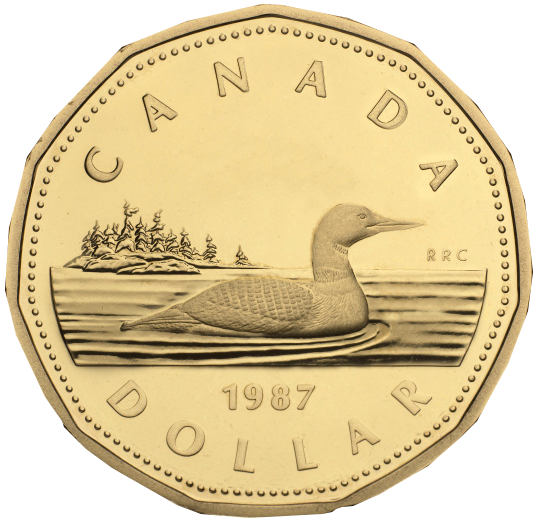

Thanks! Clojure is a great example of a modern Lisp. Common Lisp is the Swiss army knife of programming and used everywhere you care to look, that is if you look hard ;)


Thanks! Clojure is a great example of a modern Lisp. Common Lisp is the Swiss army knife of programming and used everywhere you care to look, that is if you look hard ;)

Swiss watches pretty much are all just variations on the same theme as, say, Seagull’s movements, so “meh”. I have a skeleton Seagull and it’s nicely built, but I did have to disassemble it and property clean and lube it on arrival, that’s the biggest issue with anything cheaper than a basic Seiko IMO. Not everybody is setup to do that, and parts aren’t available so if it breaks or stops working, you have to toss it. Not my preference, you’ll likely get more life out of a $20 Casio watch :-)



Gorgeous thing. Is that mercury in the glass tubes in the pendulum?
While I won’t say that writing a text editor or rewriting (base) Emacs is easy, I think it is all about the ecosystem. There’s lots of Emacs reimplementations out there, some really good ones (like Lem), but they all have the same shortcoming: “no org mode”, “no magit”, and so on.
Emacs has a truly enormous ecosystem and only a reimplementation that runs everything unchanged has a chance of attracting enough attention. There was a time that that was seen as a worthwhile venture: Elisp was limited and slow. However, now with CL compatibilty and native compilation, I don’t see it happening. Not in the sense of something standing up that can and will actually replace Emacs.
Worse is better :-)

My favorite watch is my smart watch. It’s actually smart: it never needs a charge, it sets time from atomic time signals, has a clearly readable mixed analog/digital display, and comes with some handy extras like a compass and baro/altimeter. Oh, and I can wear it while logging, as it’s virtually indestructable. Try that, Apple! (it’s a Casio G-Shock Mudmaster GWG-1000).
My second favorite watch is what I’m now wearing - a CA$129 Seagull. It’s a skeleton watch with no dial and transparent front and back case, so I can brag about my skills (“I disassembled and cleaned this watch, try to find any scratch marks on the screws!” - there are some tiny ones, I must admit), and, more importantly, show people how mechanical watches work :-). It’s also a darn good timekeeper for the money.

It’s on my (ever shrinking) list of clocks I’d like to own. And be able to maintain :-). Thanks for sharing.


The sort of protections that you’re offered by your CPU and modern OSes aren’t offered by GPUs and their libraries, yet. So you’re back in the '80s, when your Mac or MS-DOS machine would crash hard on the smallest issue. That’s life, I’m afraid.


I mostly linked thr video because it is such a nice quick overview for lay people like me :)
To me, “PR” connects to systems like used in the Netherlands (my second nationality) and Belgium. Both countries are effectively ungovernable because too much time is spent on forming coalitions, turning the country into a bureaucracy. People still dont feel represented because most parties tend to concentrate candidates from the cities where there is (and always will be) more political activity. Germany (I lived there for a while) has MMP of course but that had resulted in an enormous amounts of seats and, IIRC, very high barriers of entry to smaller parties. And, given the rise of AfD, not really instrumental it seems in letting people feel they have a say.
I’m not a fan of our current system either but strangely enough I feel more represented by an MP or MPP I can walk up to and discuss things with and who knows my area’s issues because they are “my neighbor” even though i did not vote for them then in .NL where parliamentarians representing “my” vote… Well, they were far away abstract things :)
I worked with CIVS in many settings and that seems to work well enough in practice even though it is a ranked system, but vote counting… Tough when it requires higher maths (I worked at polling stations in the past and highly value being observed when counting paper ballots).
Anyway, I’m not sure what system exactly the ads (I see them as such) are arguing for so I guess I interpret them - as I think many are likely to do - in my own context and then I am, well, the grass isn’t that green at the other side either.
(And to me, unscientifically, in the countries where I lived or worked, subjective fairness of the respective systems seemed often to be more influenced by the actual democratic roots of a country then the particular voting mechanisms in use. I guess that schools play the most important role in any electoral system).
Looking more at your site it is still quite abstract what is wanted. “Not what we have now” is just a starting point, but I see lists of alternatives, not a concrete proposal? Leaves things open for interpretation including potential misinterpretation where I’m like “oh please no not more like .NL” ;) (which I don’t consider a proper democracy to begin with, too many appointed posts and no constitutional court).
Bit of a ramble, I know, this is hard on a phone.
Thanks for the bit-by-bit on the veritasium vid, I’ll rewatch it later with your notes in hand.


https://www.veritasium.com/videos/2025/1/17/why-democracy-is-mathematically-impossible
The title is clickbaity but the point stands. PR is just a different kind of suboptimal. If you want election reform, please push for something more modern than just another system with inherent problems.


Lower settings. Sorry, thats all there is to it. 8GB is not a lot these days (i have two older cards in my PC and they’re both 12). Textures, screen resolution, there’s a bunch you can do.
Crashes are unavoidable, given that everyone wants max performance everywhere, things get shipped with all the debugging and checking stripped.


US physicians: read https://canadahealthwatch.ca/2025/03/25/i-traded-my-u-s-medical-career-for-life-in-canada-heres-how-the-two-health-systems-stack-up. I think you’re most welcome here :)


It’s just much easier to stop using them. Remember: its founder and largest shareholder (I guess) was one of the billionaire groupies standing behind Trumd during his inauguration. Canadians should not be shopping on Amazon.
My next step is asking government institutions like Environment Canada to move off X and onto Mastodon.
Politely, of course.
Kalita, great filters, Japanese.
Congrats :). You can’t go wrong with Rolex, you’re not “dropping money”, you’re “moving it around” (from your bank to your wrist), the great thing about these watches is that you can always move things around the other way again lol. I looked up the current street value of the 1980’s Date I inherited from my dad and if anything, it costs more now than it did then.


Note that most of that fee (80%) goes to the issuing bank. The rest is split between network (“the logo on you card”) and the actual payment processor.
Yes, it’s still .15% that visa or mc take but still (also, I think visa was a cooperative at one point held by all the member banks, not sure that still is the case). And CCs are dumb but that’s not the point here :)
(Source: https://www.retailcouncil.org/payment-and-credit-card-fees/)


I ran e/OS on an old OnePlus for a year, quite close to GrapheneOS and mostly just as free of Google. There are plenty of options out there to run a degoogled Android these days.
But yes, running GrapheneOS on a brand new Pixel Pro right now, couldn’t be happier.
I think French and Heinz use Canadian tomatoes. So does the bottle of Compliments in my fridge. I guess we grow more tomatoes than we realize :)
That should not happen, of course. I mean, I got a cheap chinese watch off AliX with such a strap and while I had my qualms, it held on. Are you sure you’re fully seating both pins?
Two solutions: warranty claim, or get a regular non-quick-release setup.


Yes you do! ;-)